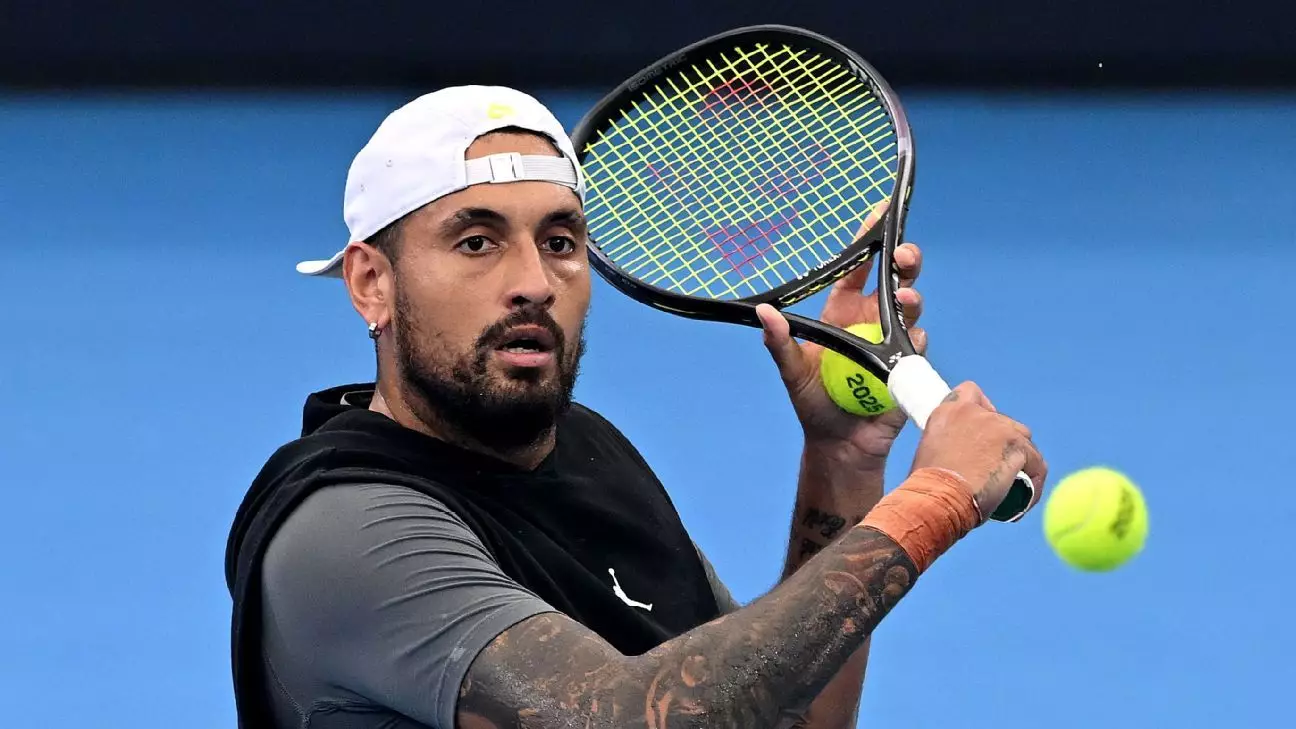Tennis, a sport steeped in tradition and legendary figures, now finds itself under scrutiny due to recent allegations involving two of its top athletes. Nick Kyrgios, known for his candid and often controversial opinions, has recently voiced strong criticism against Jannik Sinner and Iga Swiatek concerning their respective breaches of anti-doping regulations. Kyrgios’ comments bring to light not just his disdain for doping but also the broader implications it has on the sport’s integrity and reputation, igniting a discussion that goes beyond individual cases and touches upon the very foundation of competitive athletics.
Kyrgios did not mince words when he described the doping violations of Sinner and Swiatek as “disgusting.” He stated, „Two world No.1s both getting done for doping is disgusting for our sport. It’s a horrible look.“ This reflects a growing concern within tennis circles that breaches of integrity can overshadow the sport’s achievements and milestones. It isn’t just the individual players that face repercussions; the entire sport’s image suffers when its champions falter due to questionable practices.
The International Tennis Integrity Agency (ITIA) has enforced regulations for years, aiming to bolster the sport against doping. However, the recent violations raise critical questions about enforcement efficacy and the responsibilities of players and their teams. Sinner’s accidental contamination claim and Swiatek’s acceptance of a one-month suspension demonstrate a loophole that players could potentially exploit, leading to doubts about whether these punitive measures are substantial enough to deter future violations.
Kyrgios emphasized personal responsibility, arguing that athletes must be accountable for their actions. His own two-year hiatus from tournament play due to injuries underscores a personal commitment to fair play, reinforced by the statement, “For me, when people are saying that I’m disrespectful to the sport, I think someone that has tried to cheat the process is the disrespectful one in my opinion.“ Kyrgios’ viewpoint resonates strongly within the sporting community, where integrity should be valued above winning at all costs.
This raises an essential point about the mental and ethical fabric of competitive sports. Athletes are role models; when high-profile players are implicated in doping scandals, they set a poor example for aspiring young talent. Kyrgios argues for transparency and accountability, appealing for athletes to eschew shortcuts for the sake of personal and professional honor. His stance calls for a renaissance of ethics in sports, stressing that competition should be predicated on hard work and talent rather than pharmacological interventions.
In his comments regarding Sinner’s physiotherapist, Kyrgios questioned the effectiveness and professionalism of the support systems surrounding elite athletes. “I (pay) my team hundreds and thousands of dollars to be the professionals they are,” he noted, suggesting that a lapse in communication or protocol between an athlete and their support team could have monumental repercussions.
Kyrgios raised an essential concern regarding the responsibilities of trainers and medical staff. In high-stakes environments, athletes often rely heavily on their support teams; thus, any failure from those teams could lead to severe consequences for the athletes involved. When Sinner corroborated that his physiotherapist was responsible for his contamination, it raised eyebrows; one must wonder how an incident of this nature remained unaddressed for five months. Kyrgios’ incredulity is palpable: “Why did they wait five to six months to do anything about it?”
Kyrgios has called for more athletes to express their views on doping and not remain complacent. He lamented that many are “trying to sweep it under the rug,” showcasing a culture of silence around significant ethical discussions. By inviting open dialogue, he urges others within the sport to prioritize integrity over silence — where the reality of doping is addressed, and accountability becomes the norm.
Ultimately, the current landscape of tennis and the integrity surrounding it are indeed at a pivotal crossroads. Kyrgios’ passionate advocacy highlights the critical need for awareness and action regarding doping—encouraging athletes to uphold the ethical standards that make sports a true testament to human capability and achievement. In Kyrgios’ view, a unified front against doping might just be the way to safeguard the sport and its values for generations to come.


Napsat komentář